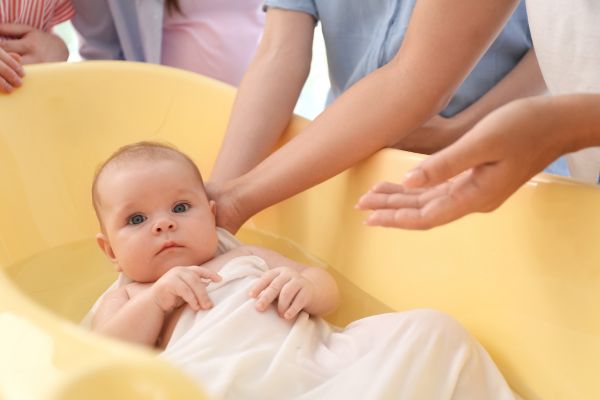Our Ghana programme specialists noted in a January blog that “when girls become educated and healthy, whole societies are better off.” I couldn’t agree with this more.
Must Read: diaper for your new born
It was a blessing to be born into a family that gave women and girls the same opportunities as men and women. My mother was one of the first women to graduate Jodphur National University, and my daughter is currently pursuing a PhD. Not all girls and women in India, or anywhere else around the globe, have the same opportunities or access to the same resources. Every girl who wants to pursue an education
Paintings made by children in Romania decorate the interior of a Blue Dot at the Sighetu Marmației border crossing.
Witnessed
is not the only one. I have witnessed this disparity in poor areas within my city, just a few kilometres from mine. The pandemic has only made these inequalities worse.
WE estimates that schoolchildren have lost 1.8 trillion hours of in-person learning worldwide since the outbreak of the pandemic. Studies show that the most severe effects of pandemic disruptions on girls are in the form of them having to do more chores and less access to educational resources such as tutors and mobile devices. This makes them less likely to return school after the outbreak. WE USA’s “Keep Girls in School” campaign is a good example of this. It aims to increase awareness about the crucial window that schools have to reopen in order to ensure girls return to school and enjoy all the safety and benefits it offers. The Malala Fund estimates that 20 million more girls could drop out of school due to the pandemic. This is in addition to the 130 million girls who are not currently attending school.
Never Miss: the right infrastructure software
Rotary places a strong emphasis on girls empowerment every day. Our 1.4 million members are aware that there are many ways to support girls around the world. These include e-learning, early childhood education, school infrastructure and sanitation improvement to increase literacy rates in India.
We recognize that, despite the successes of these and many other projects, working towards gender equality (as set out in the United Nations Gender Equality Sustainable Development Goal), requires a wider, continuous commitment from governments, public and private organizations, as well as other NGOs, non-profits, as well.
We must also continue to learn from the lessons of initiatives that employ a gender equity lens, such as the Global Polio Eradication Initiative, (GPEI), where Rotary partners with WE and the World Health Organization (WHO), US Centers for Disease Control and Prevention, (CDC), and the Bill & Melinda Gates Foundation.
GPEI’s 2022-2026 Polio Eradication Strategy focuses on the crucial role of female health workers in building trust and driving vaccine acceptance. Afghanistan and Pakistan, where wild
Polio remains endemic
“Recruiting and training women to be vaccinators, community mobilisers, and surveillance officers…is essential for campaign success.”
Also Read: about sleep apnea
Accessing children who are unable to get immunized can often be dependent on the tireless efforts of female health workers. I have had the pleasure to witness this firsthand in India as I participated in door-to-door vaccinations and National Immunization Days (NIDs). More investments are required to empower women-led immunization efforts and increase women’s access.
The GPEI clearly has the right track. Polio cases have fallen by 99.9% in the 30 years since its launch. I feel inspired to apply a gender equality lens to all Rotary-led projects and initiatives. We are also discussing gender inequalities at the annual WE event.
Most popular: explode doctor visits
While there are still many things to do, I believe that we can all work together to improve the status of girls around the world if we keep our eyes on the issues and highlight the importance of women in society.


